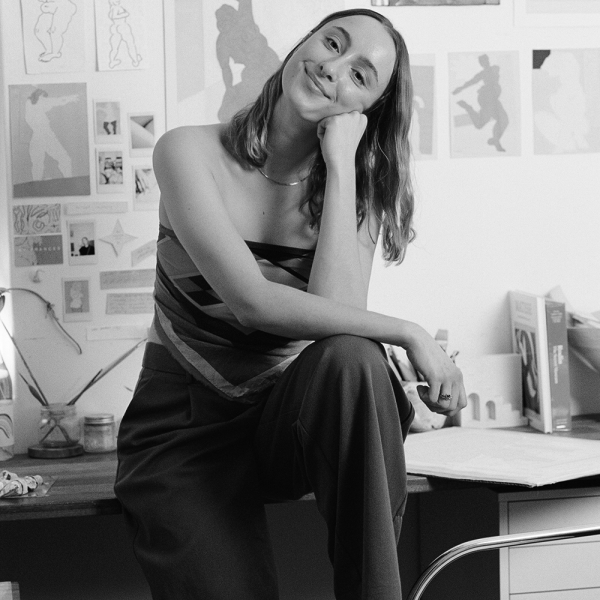Previous Exhibition
Frances Edwina Powell —
A Tender Disco — Plaything Playhouse
Nov 16 – Nov 24, 2023
A Tender Disco — Plaything Playhouse observes and mocks the inveterate feminine daily performance of complying with social conduct. This ritualistic routine often functions under the veil of etiquette and habit, almost a communion to the gods of social convention. Frances considers this as mimicking a dance routine or a puppet performing. There’s a reason why the viral TikTok trend of ‘to be a woman is to perform’ has taken off. Elements of this performance can serve us and satisfy our identity, other elements can feel directed by an omnipotent social force greater than us.
This exhibition references the later collage work of Henri Matisse and his heavily reproduced and revered body of work, which observes paid female muses in an act of posed performance.
In Frances’ work, she subverts this dynamic and often places herself in the role of ‘observed muse’. She references herself, her partner and her friends mimicking acts of daily pantomime — of partnered performance, self-monitoring and introspection — the disco of our social roles.
Materially, Frances treats her figures like dolls by cutting and pasting figures contained within paper sets. She has also reproduced these snapshots of paper dolls in paper sets within brightly rendered paintings — a still of a plaything in her playhouse. The doll's partner may make an appearance, or she may be looking at herself in the mirror or consciously being observed.
A Tender Disco — Plaything Playhouse is ultimately an observation of the elements of feminine performance that can either feel tender and personal or counterfeit and confused.
Colourful Collage Workshop with Frances Edwina Powell
Join Frances for a Colourful Collage Workshop at Side Gallery on Saturday, 18 November.
Create vibrant cut-and-paste artworks inspired by Frances’ collage practice and learn how to approach collage — the art of overlapping pieces of material to create a unique composition. Frances will run through a series of activities to guide you in creating a small collection of your very own collages using artist-quality materials.
Snack on chips, sip on some wine and enjoy a Saturday afternoon of colourful making. Limited tickets are available. Book here!
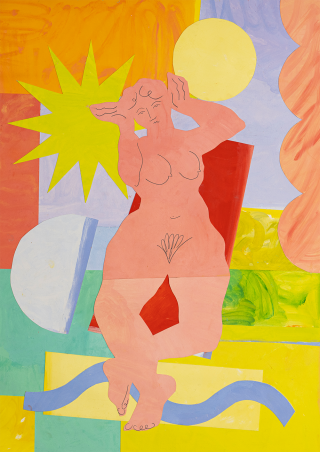
Plaything playhouse 2023
Oil paint and pencil on archival paper
59.4 x 42 cm
$895 Framed
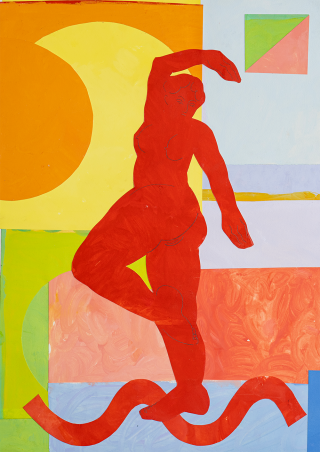
Ribbons and twirls! (hyper today) 2023
Oil paint and pencil on archival paper
59.4 x 42 cm
$895 Framed
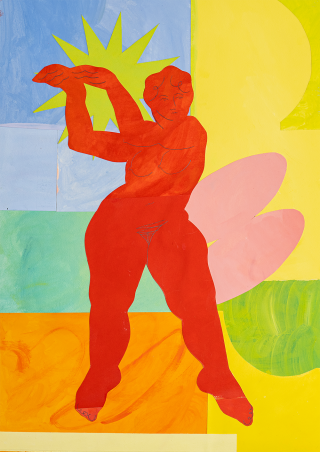
Disco tits (collage) 2023
Oil paint and pencil on archival paper
59.4 x 42 cm
$895 Framed
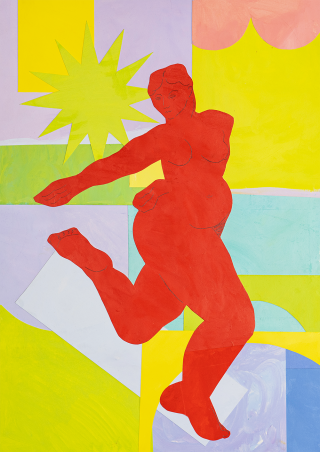 Sold
Sold
Running from the dressing room (back to bed) 2023
Oil paint and pencil on archival paper
59.4 x 42 cm
$895 Sold
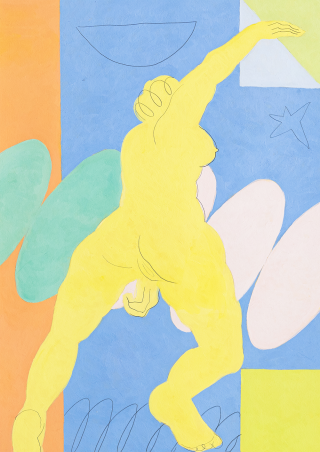 Sold
Sold
Flashing lights, yay! 2023
Oil paint and pencil on archival paper
42 x 30 cm
$595 Sold

Disco tits 2023
Oil paint and pencil on archival paper
42 x 30 cm
$595 Framed
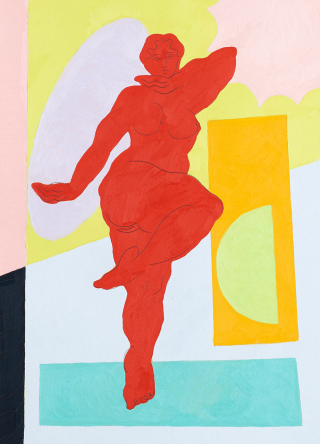 Sold
Sold
Modest performance 2023
Oil paint and pencil on archival paper
42 x 30 cm
$595 Sold

Getting ready to go (does it still fit?) 2023
Oil paint and pencil on archival paper
42 x 30 cm
$595 Framed

You’re my spirit person 2023
Oil paint and pencil on archival paper
42 x 30 cm
$595 Framed

It’s certainly working today 2023
Oil paint and pencil on archival paper
42 x 30 cm
$595 Framed
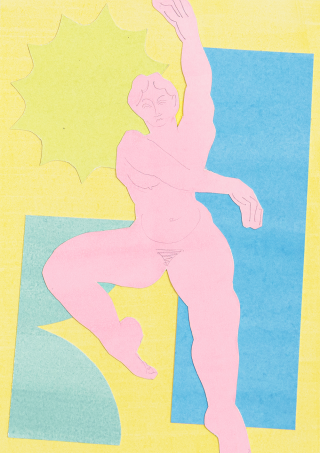
Dazzle, divert, sparkle, twirl 2023
Pigmented ink and pencil on archival paper
21 x 15 cm
$270 Framed
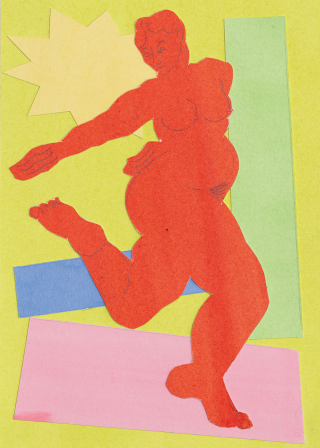
Under lights, sore feet tomorrow 2023
Pigmented ink and pencil on archival paper
21 x 15 cm
$270 Framed
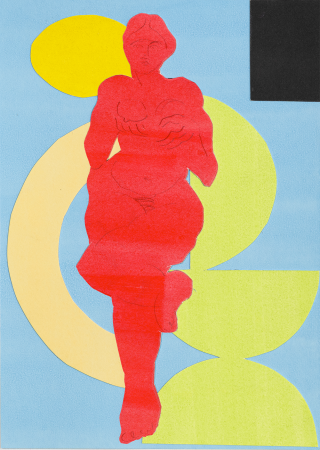
Upright uptight 2023
Pigmented ink and pencil on archival paper
21 x 15 cm
$270
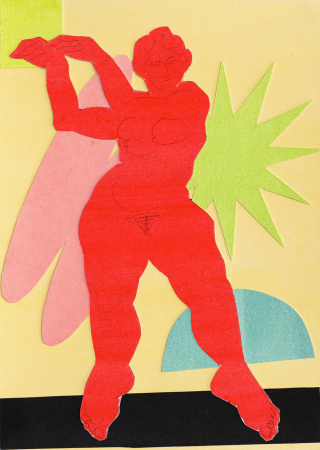
Disco tits (study) 2023
Pigmented ink and pencil on archival paper
21 x 15 cm
$270

I’m so happy to be here (sigh) 2023
Pigmented ink and pencil on archival paper
21 x 15 cm
$270
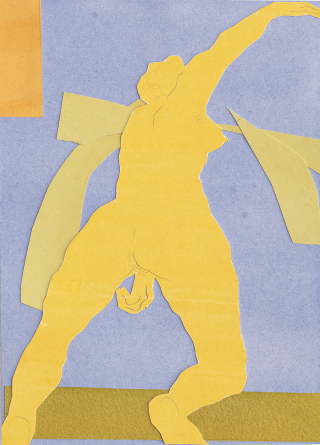 Sold
Sold
Watch my dance routine 2023
Pigmented ink and pencil on archival paper
21 x 15 cm
$270 Sold
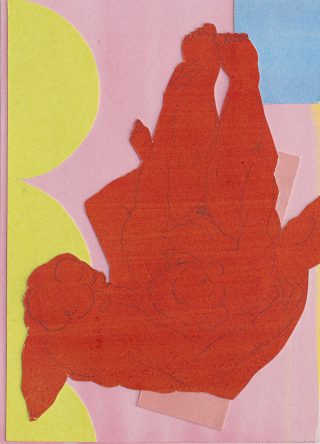 Sold
Sold
Morning 2023
Pigmented ink and pencil on archival paper
21 x 15 cm
$270 Sold
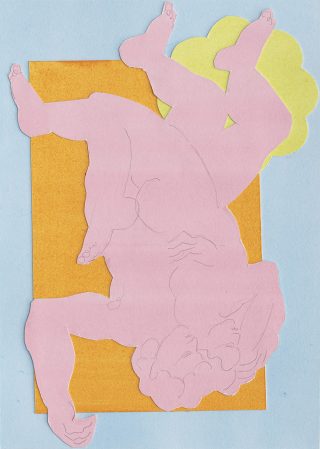 Sold
Sold
Moving shapes 2023
Pigmented ink and pencil on archival paper
21 x 15 cm
$270 Sold
 Sold
Sold
To be woman is to perform 2023
Pigmented ink and pencil on archival paper
21 x 15 cm
$270 Sold
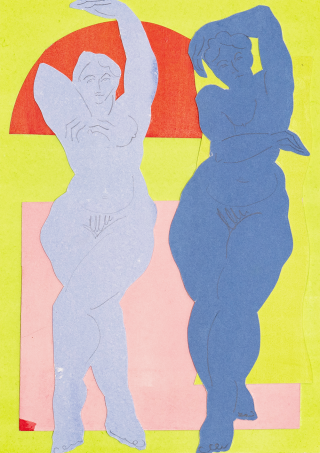 Sold
Sold
Tarty puppets 2023
Pigmented ink and pencil on archival paper
21 x 15 cm
$270 Sold
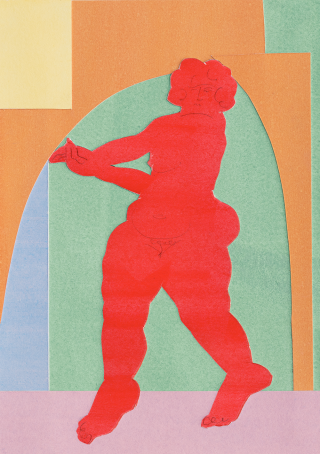
All warmed up
Pigmented ink and pencil on archival paper
21 x 15 cm
$270 Framed

Facsimile 2023
Pigmented ink and pencil on archival paper
21 x 15 cm
$270 Framed

Elephant feet (stomp stomp)
Pigmented ink and pencil on archival paper
21 x 15 cm
$270 Framed

Can I tell you about my violent dream last night? 2023
Pigmented ink and pencil on archival paper
21 x 15 cm
$270 Framed
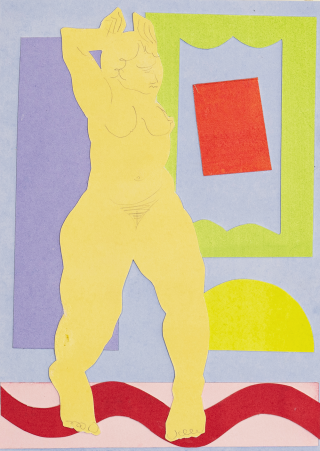
Bunny ears up (extra cute) 2023
Pigmented ink and pencil on archival paper
21 x 15 cm
$270 Framed
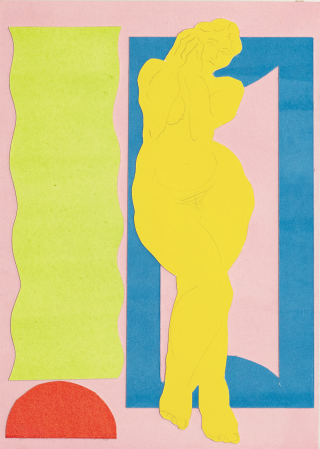
Daily decorum, so lovely 2023
Pigmented ink and pencil on archival paper
21 x 15 cm
$270 Framed
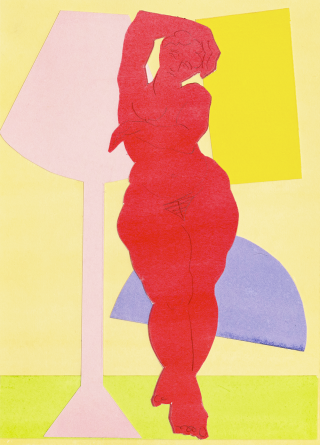 Sold
Sold
I’m softer today than yesterday 2023
Pigmented ink and pencil on archival paper
21 x 15 cm
$270 Sold
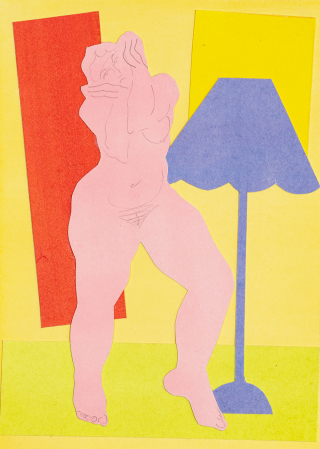
Plaything Playhouse (study) 2023
Pigmented ink and pencil on archival paper
21 x 15 cm
$270 Framed
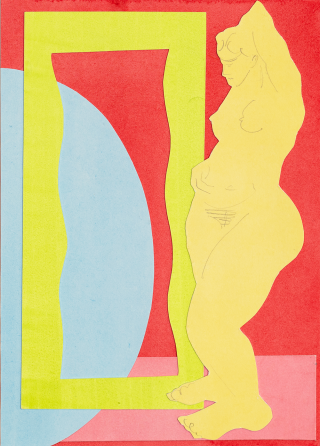 Sold
Sold
Serving, slaying, ugh 2023
Pigmented ink and pencil on archival paper
21 x 15 cm
$270 Sold
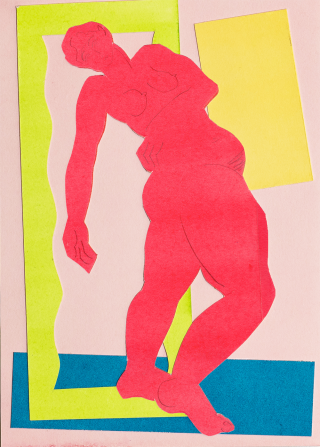
Taller than my backdrop 2023
Pigmented ink and pencil on archival paper
21 x 15 cm
$270 Framed
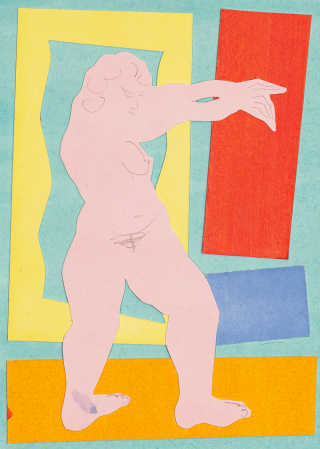
Well that’s not my mirror 2023
Pigmented ink and pencil on archival paper
21 x 15 cm
$270 Framed
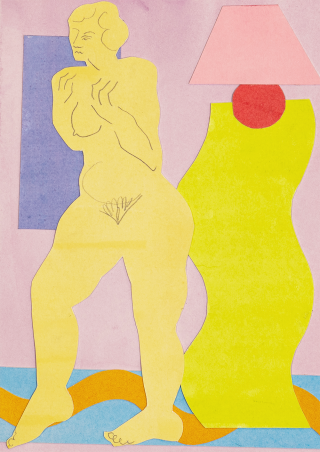 Sold
Sold
Is this my dollhouse? 2023
Pigmented ink and pencil on archival paper
21 x 15 cm
$270 Sold
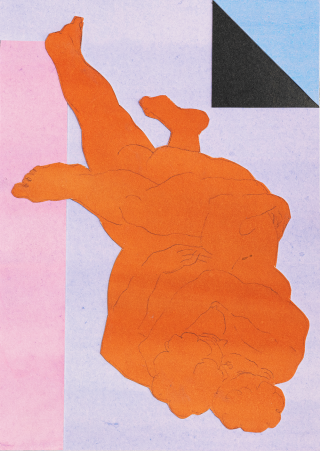 Sold
Sold
Behold/hold 2023
Pigmented ink and pencil on archival paper
21 x 15 cm
$270 Sold
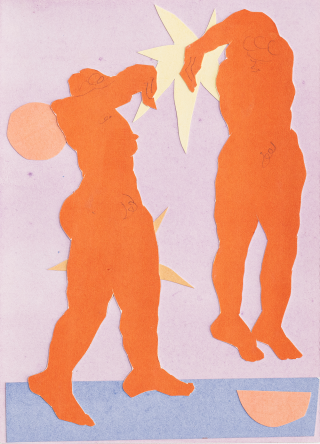 Sold
Sold
You’re my spirit person (study) 2023
Pigmented ink and pencil on archival paper
21 x 15 cm
$270 Sold
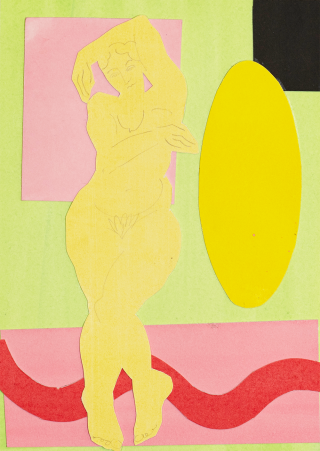
It’s serving up nothing 2023
Pigmented ink and pencil on archival paper
21 x 15 cm
$270 Framed

Tender Disco — Print Prose 2023
Limited edition lino print (hand printed) on archival paper & prose on paper
Limited Edition of 45
25 x 17 cm
$45


